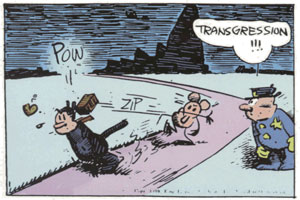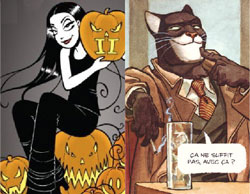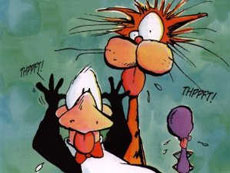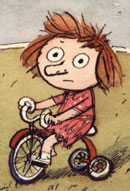 FLASHBACK! Is writing funny female characters a bigger challenge than making male characters funny? Or is it all a matter of approach? Paige Braddock (Jane’s World) and Hilary Price (Rhymes with Orange) join Tim to discuss a topic we picked up from Webcomics Weekly episode 35!
FLASHBACK! Is writing funny female characters a bigger challenge than making male characters funny? Or is it all a matter of approach? Paige Braddock (Jane’s World) and Hilary Price (Rhymes with Orange) join Tim to discuss a topic we picked up from Webcomics Weekly episode 35!
This episode was originally published November 3, 2008.
Podcast: Play in new window | Download


 In
In 



 When you think of ’80s comics, Berke Breathed’s Bloom County is one that belongs in the pantheon with Watchmen and Dark Knight. It pushed many boundaries on the ever-conservative funnies page, from modern dating to issue advocacy, balancing cumudgeonliness with exuberance and hope. But how much of a hurdle are the pop culture references for modern readers? Is it still worth reading? Tim and Patrik dust off their memories and try to look at this classic strip with new eyes.
When you think of ’80s comics, Berke Breathed’s Bloom County is one that belongs in the pantheon with Watchmen and Dark Knight. It pushed many boundaries on the ever-conservative funnies page, from modern dating to issue advocacy, balancing cumudgeonliness with exuberance and hope. But how much of a hurdle are the pop culture references for modern readers? Is it still worth reading? Tim and Patrik dust off their memories and try to look at this classic strip with new eyes.
